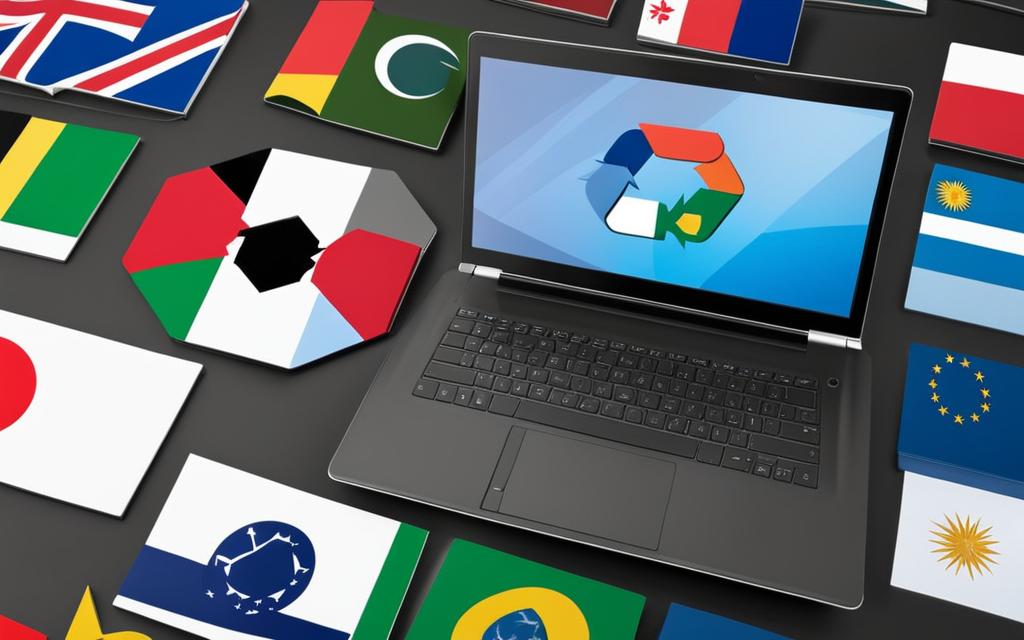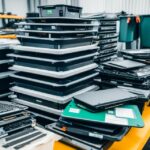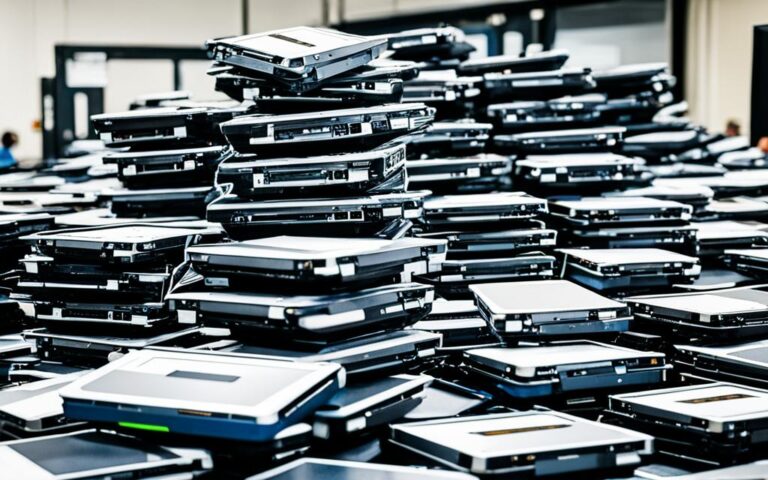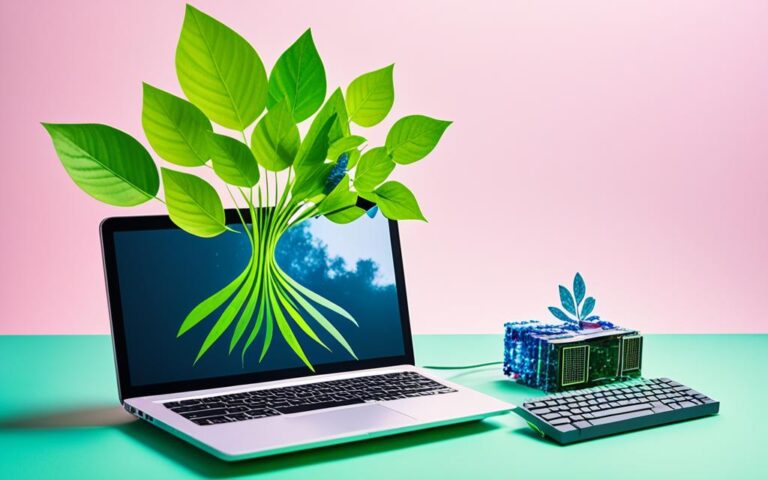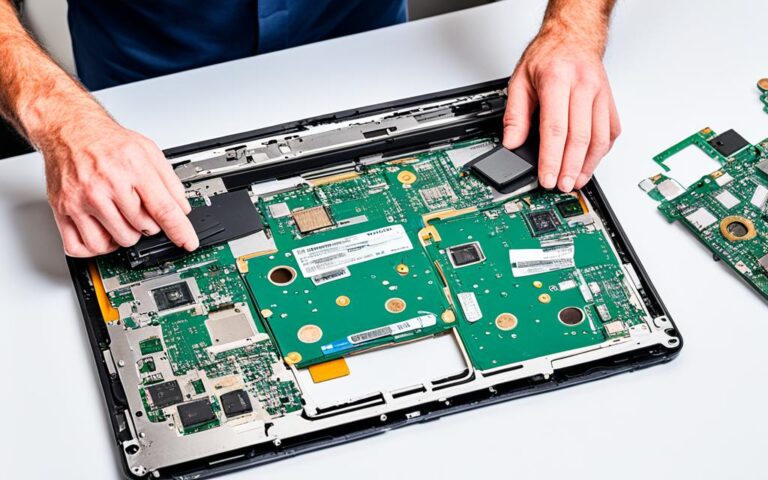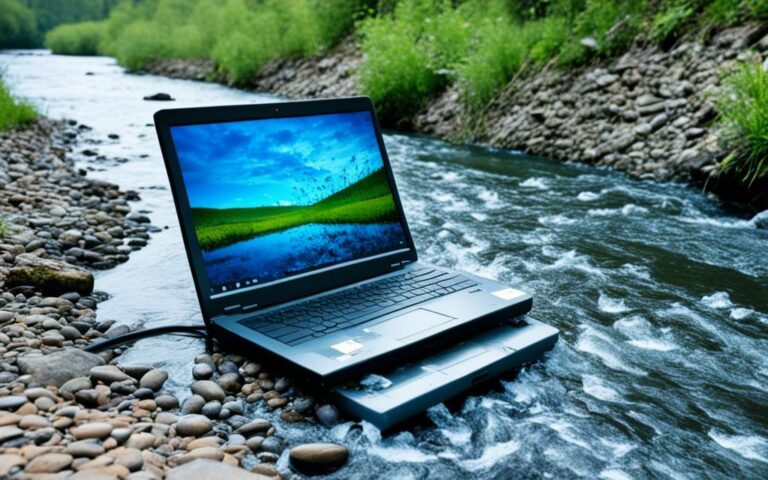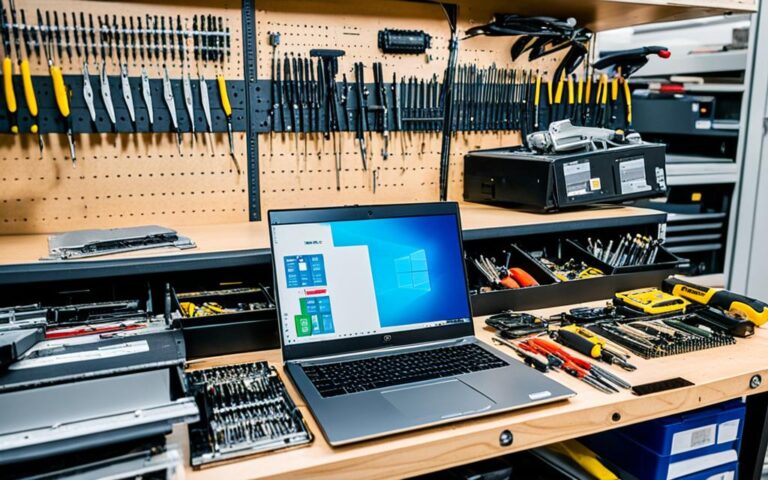The Global Perspective on Laptop Recycling: Success Stories from Around the World
In today’s digital age, laptops have become an essential part of our lives, enabling us to work, connect, and communicate with the world. However, the rapid advancement of technology has also led to a significant increase in electronic waste, including discarded laptops. To combat this environmental challenge, countries around the world have adopted innovative approaches and strategies to promote laptop recycling and achieve sustainability goals.
According to a recent report by environmental consultancy firm Eunomia Research and Consulting, several nations have emerged as leaders in laptop recycling success. These top-performing countries have implemented robust government policies, provided financial incentives, and established funding for recycling programs. They have clear policy objectives and performance targets in place, ensuring a comprehensive approach towards sustainable laptop disposal and recycling.
A few countries worth highlighting for their remarkable laptop recycling achievements are Germany, Austria, South Korea, Wales, and Switzerland. Let’s explore their inspiring success stories and the strategies they have employed to address the global challenge of e-waste.
Germany, known for its strong commitment to environmental sustainability, has pioneered packaging waste management through its Packaging Ordinance. This legislation places the responsibility of managing packaging waste on the producers, leading to the establishment of initiatives like Der Grüne Punkt (The Green Dot). This nationwide collection system ensures that used sales packages are properly recycled, minimizing the environmental impact of packaging waste.
Austria has focused on landfill tax and producer responsibility to reduce waste going to landfills. By imposing a landfill tax and implementing a ban on specific waste types, Austria has significantly decreased its organic carbon emissions. The country’s producer responsibility model, managed by organizations like Altstoff Recycling Austria (ARA), ensures the proper collection and recycling of packaging waste. Austria also emphasizes the importance of reuse and repair programs, contributing to a highly sustainable circular economy.
South Korea, on its path towards sustainable development, has taken decisive measures to increase local recycling rates and reduce plastic waste. The government has implemented bans on single-use plastic bags and plans to eliminate plastic straws and disposable cups by 2027. Financial assistance has also been provided to recycling companies to navigate the challenges caused by the ban on importing plastic recyclables. South Korea’s commitment to achieving a domestic recycling rate of 70% by 2030 is driving significant progress in the country’s laptop recycling efforts.
Wales, with its strong political leadership and investment in recycling, has achieved high recycling rates and set ambitious waste management targets. The government has made recycling mandatory for local administrations and has provided financial support for recycling collection services. As a result, 99% of households in Wales have their food waste collected, and municipal waste is efficiently processed to generate power for homes. Wales is committed to achieving 100% recycling and zero waste by 2050, setting an inspiring example for others to follow.
Switzerland, known for its efficient recycling system, has implemented the “polluter pays” principle, driving waste reduction and the use of recyclable materials. With over 16,000 collection points for recyclable materials, the country has made recycling convenient and accessible for its citizens. Switzerland has achieved high recycling rates for various products, including glass, tin cans, PET bottles, electronic appliances, textiles, and shoes. This success can be attributed to an efficient recycling system and a commitment to sustainable practices.
In conclusion, these success stories from Germany, Austria, South Korea, Wales, and Switzerland demonstrate the importance of strong government policies, financial incentives, and clear objectives in achieving high laptop recycling rates. These countries have implemented strategies that promote a sustainable circular economy, reduce waste generation, and ensure the proper disposal and recycling of electronic waste. Given the increasing global concern over e-waste, it is essential for more countries to adopt similar approaches and work towards establishing global laptop recycling success.
To contribute to laptop recycling success in the United Kingdom, you can explore IT Recycle’s server recycling services. They provide responsible and environmentally friendly disposal of IT equipment, supporting the country’s sustainability goals.
Germany: Pioneering Packaging Waste Management
In Germany, the commitment to sustainable practices extends beyond laptop recycling. The country has taken significant steps towards efficient packaging waste management, demonstrating its dedication to environmental preservation.
Germany introduced the Packaging Ordinance in 1991, which made packaging waste management and product stewardship the responsibility of packaging producers. This forward-thinking approach has resulted in the establishment of Der Grüne Punkt (The Green Dot) system, where manufacturers collect used sales packages nationwide.
With the enactment of the German Packaging Act in 2019, companies are now required to pay a recycling fee for their packaged products. This financial incentive encourages the use of eco-friendly packaging materials and reduces the overall impact of packaging waste on the environment.
This progressive packaging waste management system in Germany showcases the country’s commitment to sustainable practices and serves as an inspiration for other nations.
Austria: Landfill Tax and Producer Responsibility
In Austria, the implementation of a landfill tax and a ban on certain types of waste with a high organic carbon emission rate have been instrumental in reducing waste going to landfills. This proactive approach has significantly contributed to Austria’s success in laptop recycling.
Austria follows a producer responsibility model, where organizations like Altstoff Recycling Austria (ARA) play a crucial role in collecting and recycling packaging waste. Through their efforts, Austria has achieved a highly efficient and sustainable system for managing and disposing of packaging material.
Moreover, Austria places great emphasis on the principles of reuse and repair, promoting a circular economy that minimizes waste generation. Programs like RepaNet and ReVital have been instrumental in encouraging the reuse and repair of various products, including laptops, further contributing to sustainable practices and reducing electronic waste.
By combining the implementation of a landfill tax, the adoption of a producer responsibility model, and the promotion of reuse and repair initiatives, Austria has created a comprehensive approach to laptop recycling that serves as a model for other countries.
Austria’s Landfill Tax and Ban on High Organic Carbon Emission Waste
Austria’s landfill tax and the ban on certain waste types serve as significant deterrents to landfill disposal. The landfill tax imposes a financial burden on waste generators, encouraging them to seek alternative disposal methods, such as recycling. By making landfill disposal economically less attractive, the tax motivates businesses and individuals to find more sustainable waste management solutions.
“Austria’s landfill tax has been instrumental in reducing waste going to landfills and promoting sustainable practices in waste management.”
Austria’s Producer Responsibility Model
Under Austria’s producer responsibility model, organizations like Altstoff Recycling Austria (ARA) take the lead in collecting and recycling packaging waste. This model holds producers accountable for the entire lifecycle of their products, from production to disposal. By shifting the responsibility to manufacturers, Austria ensures that the necessary infrastructure is in place to collect and recycle packaging waste effectively.
Promotion of Reuse and Repair
Austria’s commitment to the principles of reuse and repair is exemplified through initiatives like RepaNet and ReVital. These programs encourage individuals and businesses to extend the lifespan of products, including laptops, through repair and refurbishment. By promoting reuse and repair, Austria reduces the demand for new products and minimizes the environmental impact associated with manufacturing and disposal.
| Key Features of Austria’s Laptop Recycling Approach | Benefits |
|---|---|
| Implementation of a landfill tax | – Reduction in waste sent to landfills – Incentivizes sustainable waste management practices |
| Ban on certain waste types with high organic carbon emission | – Prevention of harmful emissions – Encourages adoption of environmentally friendly alternatives |
| Producer responsibility model | – Efficient collection and recycling of packaging waste – Ensures accountability throughout the product lifecycle |
| Promotion of reuse and repair | – Extended lifespan of products – Reduction in demand for new products |
South Korea: Local Recycling and Reduction of Plastic Waste
South Korea is taking substantial steps to improve local recycling rates and combat plastic waste. The government has implemented several measures to address these environmental challenges. One notable action is the ban on single-use plastic bags, which has helped to reduce plastic consumption and encourage alternative eco-friendly options. Furthermore, South Korea has plans to ban plastic straws and disposable cups by 2027, showcasing their commitment to tackling plastic waste.
To accomplish their sustainability goals, South Korea has set a target of achieving a domestic recycling rate of 70% by 2030. This ambitious objective demonstrates their dedication to effective waste management and resource recovery. The government has recognized the importance of assisting recycling companies during the transition caused by the ban on importing plastic recyclables. By providing financial assistance, South Korea aims to support the development of a robust and sustainable recycling industry.
To illustrate the impact of South Korea’s efforts, consider the following statistics on plastic waste management:
| Plastic Waste Management in South Korea | Data |
|---|---|
| Plastic Bags Banned | Yes |
| Plastic Straws Banned (by 2027) | Planned |
| Disposable Cups Banned (by 2027) | Planned |
| Target Recycling Rate by 2030 | 70% |
South Korea’s bold approach to plastic waste management showcases the nation’s commitment to environmental sustainability. By banning single-use plastic items and setting ambitious recycling targets, South Korea is leading the way in promoting a circular economy and reducing plastic pollution. With these efforts, South Korea is driving positive change and inspiring other countries to take similar action.
“The ban on single-use plastic bags has been an important step towards reducing plastic waste in South Korea. It encourages people to adopt reusable alternatives and raises awareness about the impact of plastic on the environment.” – Environmental Activist of South Korea
Government Initiatives for Recycling in South Korea
The South Korean government has launched various programs to support recycling initiatives and ensure their success. These include:
- Financial assistance to recycling companies
- Public awareness campaigns on responsible waste management
- Educational programs promoting recycling
- Investments in recycling infrastructure
Through these comprehensive measures, South Korea is fostering a culture of recycling and sustainable consumption, setting an example for other nations to follow.
Wales: Political Leadership and Investment in Recycling
Wales has emerged as a leader in the field of laptop recycling, thanks to its strong political leadership and substantial investment in recycling initiatives. The government has implemented mandatory recycling targets for local administrations, paving the way for a significant increase in the collection and recycling of electronic waste.
Financial support for recycling collection services has played a crucial role in Wales’ recycling success. This support has enabled the establishment of efficient collection systems, ensuring that electronic waste is properly disposed of and recycled.
One of the notable achievements in Wales’ recycling efforts is the collection of food waste from households. With an impressive 99% of households having their food waste collected, the country has made great strides in reducing organic waste going to landfills.
Furthermore, Wales has embraced sustainable practices by using municipal waste to generate power for homes. This approach not only reduces the environmental impact of waste but also contributes to the development of renewable energy sources.
Wales’ commitment to environmental sustainability is exemplified by its ambitious goal of achieving 100% recycling and zero waste by the year 2050. Through robust political leadership and ongoing investment, Wales continues to pave the way for a greener future in laptop recycling.
The impact of political leadership and investment in recycling:
- High recycling rates
- Efficient collection systems
- Reduction of organic waste in landfills
- Renewable energy generation
- Commitment to sustainability goals
Switzerland: The “Polluter Pays” Principle and Efficient Recycling System
Implementing the “Polluter Pays” Principle
Switzerland has established itself as a global leader in laptop recycling through its implementation of the “polluter pays” principle. This principle holds manufacturers and consumers responsible for the environmental impact of their products, encouraging waste reduction and the use of recyclable materials. By placing the onus on the polluters, Switzerland has created a strong incentive for sustainable practices in the electronics industry.
A Convenient Recycling Network
Switzerland boasts an impressive network of over 16,000 collection points for recyclable materials, including laptops. This extensive network makes it convenient for citizens to drop off their old laptops, promoting responsible disposal and recycling. By providing easy access to recycling facilities, Switzerland ensures that these electronic devices are diverted from landfills and properly processed to extract valuable materials.
Achieving High Recycling Rates
Thanks to its efficient recycling system, Switzerland has achieved high recycling rates for various products, including glass, tin cans, PET bottles, electronic appliances, textiles, and even shoes. This success can be attributed to the country’s commitment to sustainable waste management practices and the active participation of its citizens, who are eager to embrace recycling as part of their daily routines.
| Recycling Category | Recycling Rate |
|---|---|
| Glass Products | 80% |
| Tin Cans | 75% |
| PET Bottles | 85% |
| Electronic Appliances | 90% |
| Textiles | 70% |
| Shoes | 80% |
The Path to Laptop Recycling Success
Switzerland’s commitment to sustainable practices, coupled with the “polluter pays” principle and the efficient recycling system, has led to its remarkable success in laptop recycling. By prioritizing waste reduction, encouraging the use of recyclable materials, and providing widespread access to recycling facilities, Switzerland sets a shining example for other countries to follow in their pursuit of a circular economy.
Conclusion
The success stories from Germany, Austria, South Korea, Wales, and Switzerland highlight the significant impact of strong government policies, financial incentives, funding for recycling programs, and clear objectives in achieving high laptop recycling rates. These countries have implemented comprehensive strategies that promote a sustainable circular economy, reduce waste generation, and ensure the proper disposal and recycling of electronic waste.
As the global increase in e-waste continues to grow, it becomes essential for more countries to adopt similar strategies and work towards achieving global laptop recycling success. By implementing robust government policies, providing financial incentives, and investing in recycling programs, countries can contribute to reducing electronic waste and creating a more sustainable future.
To actively contribute to laptop recycling success in the United Kingdom, one can explore IT Recycle’s server recycling services (link to https://it-recycle.uk/server-recycling-uk/). These services ensure responsible and environmentally friendly disposal of IT equipment, supporting the goal of achieving a more sustainable and circular economy.
FAQ
What are the top countries for laptop recycling?
The top countries for laptop recycling are Germany, Austria, South Korea, Wales, and Switzerland.
What strategies have these countries implemented to promote laptop recycling?
These countries have implemented various strategies such as strong government policies, financial incentives, funding for recycling programs, clear policy objectives, and performance targets.
What is the Packaging Ordinance in Germany?
The Packaging Ordinance in Germany is a law that makes packaging waste management and product stewardship the responsibility of packaging producers.
What is Der Grüne Punkt (The Green Dot) system in Germany?
Der Grüne Punkt (The Green Dot) is a system in Germany where manufacturers collect used sales packages nationwide.
How does Austria reduce waste going to landfills?
Austria reduces waste going to landfills through the implementation of a landfill tax and a ban on certain types of waste with a high organic carbon emission rate.
How does South Korea aim to increase local recycling rates?
South Korea aims to increase local recycling rates by implementing bans on single-use plastic bags, plastic straws, and disposable cups. They also provide financial assistance to recycling companies.
How has Wales achieved high recycling rates?
Wales has achieved high recycling rates through political leadership, investment, and by setting mandatory recycling targets for local administrations.
How does Switzerland incentivize waste reduction?
Switzerland incentivizes waste reduction through the “polluter pays” principle, which encourages the use of recyclable materials and imposes a fee on waste producers.
What items does Switzerland have collection points for recycling?
Switzerland has collection points for recycling various items including glass products, tin cans, PET bottles, electronic appliances, textiles, and shoes.
How do these success stories contribute to global laptop recycling success?
These success stories demonstrate that strong government policies, financial incentives, funding for recycling programs, and clear objectives are vital in achieving high laptop recycling rates globally.
How can I contribute to laptop recycling success in the United Kingdom?
You can contribute to laptop recycling success in the United Kingdom by using IT Recycle’s server recycling services, which ensure responsible and environmentally friendly disposal of IT equipment.

